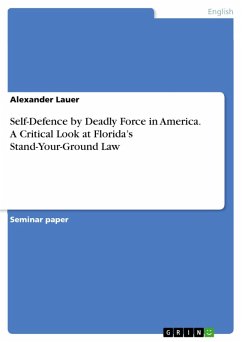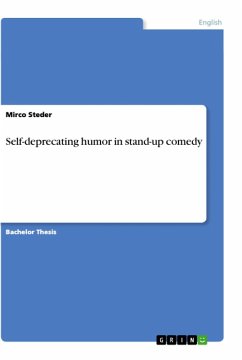Seminar paper from the year 2015 in the subject American Studies - Culture and Applied Geography, grade: 1,0, University of Tubingen (Englisches Seminar), course: Proseminar II: Guns and Gun Control in America, language: English, abstract: The debate about "stand your ground" seems to rest on simplification and emotion. Suffice it to say that a former president of the National Rifle Association (NRA), Marion P. Hammer, called opponents of Florida's stand-your-ground law "Chicken Littles", and that Martin Dyckman of the St. Petersburg Times advised tourists to avoid Florida because "Lebanon might be safer". This paper wants to establish a clear view on some aspects of the past and present of self-defence by deadly force, which is the most controversial case of Florida's stand-your-ground law. The paper hence aims at two things: shortly explaining the historical roots of the law and then taking a critical look at the law itself in order to determine whether it shows any serious flaws that would justify changing it. After a short account of the theory of self-defence in general, the focus in the first part will be on the history of self-defence by deadly force in English and American law, whose keywords "duty to retreat" and "castle doctrine" are pivotal for understanding today's law. In the second part, the specific situation of Florida will be addressed. Firstly, by giving a brief overview of how the duty to retreat and the castle doctrine were interpreted in Florida until the new stand-your-ground law took effect in 2005, and secondly, by expounding the content of the law and the arguments that have been put forward in favour of it. The last part will then deal with the arguments speaking against it and produce some of the points it has been most criticised for in the literature.
Dieser Download kann aus rechtlichen Gründen nur mit Rechnungsadresse in A, B, BG, CY, CZ, D, DK, EW, E, FIN, F, GR, HR, H, IRL, I, LT, L, LR, M, NL, PL, P, R, S, SLO, SK ausgeliefert werden.









